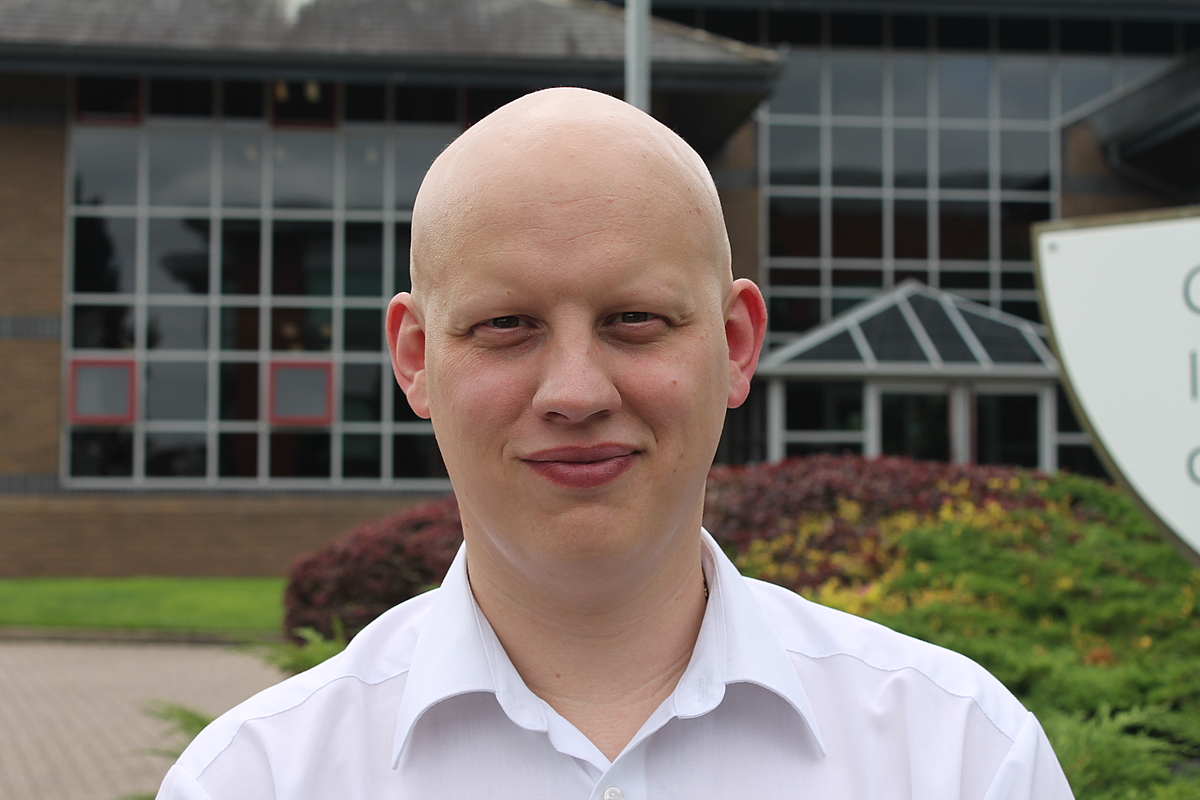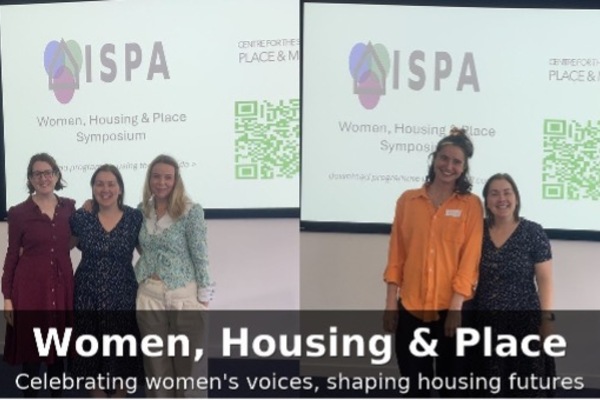
Yoric Irving-Clarke is a policy and practice officer for the Chartered Institute of Housing. He has over 20 years’ experience as a housing practitioner working mainly in the fields of homelessness and supported housing. After completing a PhD in Social Policy, he now writes and researches on housing issues. He is the author of “Supported Housing: Past, present and future” (published by Routledge) and is currently working on his second book. In December 2019, Yoric attended the first HSA/HSCT seminarwhich he discusses in this blog.
As last hurrahs go, this was a pretty fine one!
This seminar on tenure was Craig Gurney’s final act for Cardiff University before moving to his new home at the University of Glasgow. Inspired by a blog by Professor Emeritus Alan Murie on whether tenure is still a useful concept in analysing housing, Craig, along with Jenny Hoolachan (Cardiff University) and Kim McKee (University of Stirling) called together a group of housing researchers and practitioners to discuss and debate this question.
Professor Murie opened the day by outlining the key points from his blog. The starting point for housing analysis should be a disaggregation of the tenure categories used in official statistics, to make the differences within tenures apparent. For example, removing leasehold ownership and shared ownership from the ‘owner occupation’ category reduces the percentage of owners from 63% to 52% of households. Issues of housing quality/condition, cost and precarity cut across tenures. In the UK, unhealthy housing is found in all tenures. Overcrowding is more prevalent in the social sector, whilst dwellings that fall below the decent homes standard are more likely to be in the private rented sector or among older owner occupiers. Relatedly, assumptions about wealth and tenure can also be misleading. Not all owners are wealthy, even where their mortgage has been paid off. There is variation related to geography, property size, type and age. It might be more informative to think in terms of asset wealth rather than tenure alone. So, what are the alternatives?
Richard Ronald (University of Amsterdam) presented his research on housing precarity and the changing meaning of housing. His case is that people are changing the way they use their housing. It has traditionally been used as a source of personal and familial security, but is increasingly used as an asset, an investment; a store of wealth. Professor Ronald’s research showed that there is a new class of high net worth individuals who are also highly mobile; prompting speculation (from myself) that the label ‘no fixed abode’ might be applied equally to this group as to those who are homeless. He also proposed that housing is much more flexible than it used to be, highlighting the concept of “liquid housing”. People use their homes as hotels via AirBnB (for example), people use hotels as home, and co-housing and shared housing were identified as new, more liquid, modes of dwelling.
Jenny Hoolachan (Cardiff University) spoke about her research into homelessness and transitions into housing. She shared a story of a young man who had moved into his own flat, had gone out to get some beer but panicked when he returned as alcohol was not allowed in his previous (hostel) accommodation. The ability to drink in his own flat not only marked a moment of transition for him but is also indicative of the ways in which people who are homeless or deemed to be ‘vulnerable’ in some way are subject to greater surveillance and sanction than those living in wealthier circumstances. Hoolachan also advanced both Nussbaum’s capabilities approach and the concept of ‘home’ as lenses that cut across tenure but could be used as alternative concepts through which to examine housing experiences.
Craig Gurney (Cardiff University) addressed the issue from two viewpoints, social practice theory and ‘home and ontological security’. In the first half of his presentation, Gurney focused on the social construction of tenure asking how it is constructed, experienced and understood by those that use it. He also pointed out that rental tenures are currently under-theorised compared to ownership and the experience of landlords neglected in the literature. The second half focused on ‘home’ and ‘ontological security’ or the ‘security of self’. This concept is currently being reappraised in the light of growing housing precarity and the impact on well-being and mental health that this is having.
Cardiff University PhD Student Rhiannon Craft’s research focuses on ‘housing as resistance’ and ‘van dwellers’, as an example of alternative modes of housing. Using a quote from Ward (1976),
“The important thing about housing is not what it is, but what it does in people’s lives.”
Craft spoke about her research with people who had made a positive choice to live in alternative forms of dwelling. Particularly interesting was her description of an interviewee whose mental and physical health had been severely impacted by living in sub-standard ‘fixed’ accommodation and had therefore opted to live in a converted vehicle. They reported significant health improvements as a result of this move. This example speaks directly to a mistaken assumption in our discussions of tenure, that everyone wants to live in a house at a fixed address, Craft’s research suggests otherwise. Some people find a sense of wellbeing and freedom in alternative lifestyles – not everyone wants to be tied down!
ESRC Post-doctoral Fellow, Jen Owen (Cardiff University) came at the topic from the lens of self-storage use. She argued that ‘domestic materiality’ cuts across tenure – we all have ‘stuff’ and what happens to that when we have nowhere to dwell? Her research indicates that people often use self-storage at times of crisis or major life events, for example bereavement, divorce, dislocation or when that are forced to downsize. Questions asked by Owen followed on from the previous presentation suggesting that a formal dwelling is not the only place that ‘home’ can be performed – suggesting that ‘home’ is perhaps as much a performative concept as it is a spatial one. Spatial concerns were also to the fore though, Owen asking questions about who does and doesn’t have enough space for their possessions? And is this an issue? How much ‘home’ do we need?
For my own presentation I opened by asking if we want tenure to tell us something, what do we want it to say? There are several possible answers to this question ranging across economic, social and personal factors – but aggregated data can only tell us so much. For example, the data in the English Housing Survey can tell us general trends in the age, gender or ethnicity of tenants, but can’t tell us anything about how individuals experience home. Given the personal nature of ‘home’, this seems scarcely adequate. I also covered the party manifestos from the 2019 general election and how they discuss tenure. In England at least, owner occupation is discussed in terms of support, the PRS in terms of reform and social housing in terms of improvement; political language, it seems, follows the well-trodden tenure fault lines! I also touched on how tenure changes the individual’s relationship with the state. Private renters and owner occupiers are largely left to their own devices whilst social housing tenants are subject to surveillance by a well-developed machine of anti-social behaviour teams and housing officers. Indeed, anti-social behaviour complaints are only subject to the civil burden of proof, breach of a related order could result in a criminal conviction for an action that isn’t in and of itself illegal, and possibly eviction. I suggest that social tenants are far more likely to end up in this situation.
Finally, Dave Cowan (University of Bristol) closed out the day by reminding us that tenure is first and foremost a legal construct that delineates our rights and responsibilities in relation to property or space. He asked whether the housing crisis is, in fact, framed as a ‘tenure crisis’? For all the talk of a free market, legal considerations frame the market and the distribution of property across the market is structured by the rights granted to some and not others by the law. Legality is not divorced from material constraints but is integral to the debate.
All in all, a fascinating day of presentations and discussion about tenure. Security, precarity and control were the key words of the day featuring in discussions of every presentation. The discussion will continue at a second seminar to be held at the University of Stirling in 2020. If it’s half as good as this one, it will still be something special!
References
Ward, C (1976) Housing: an anarchist approach, Freedom Press, London






